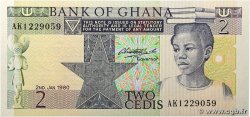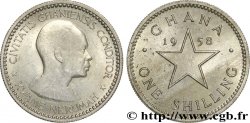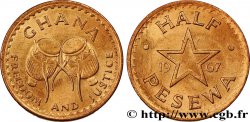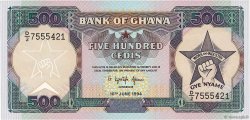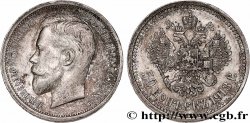fwo_976132 - GHANA 2 Shillings Kwame Nkrumah / étoile 1958
15.00 €
Cantidad
Añadir a su cesta

Tipo : 2 Shillings Kwame Nkrumah / étoile
Fecha: 1958
Cantidad acuñada: 34400000
Metal: cupro-níquel
Diámetro: 26,5 mm
Eje de acuñación: 12 h.
Peso: 8,93 g.
Canto: striée
N° en los catálogos de referencia :
Anverso
Titulatura del anverso: CIVITATIS GHANIENSIS CONDITOR // P.V. // * KWAME NKRUMAH *.
Descripción del anverso: buste à droite de Kwame Nkrumah.
Reverso
Titulatura del reverso: GHANA // 19 58 // TWO SHILLINGS.
Descripción del reverso: étoile.
Comentario
Kwame Nkrumah (1906-1972) est le père de l’indépendance du Ghana et son premier président. Dernier premier ministre de la Côte-de-l’Or en 1951 sous administration britannique, il remporte une victoire écrasante aux élection législative de 1957, ce qui oblige le Royaume-Uni à concéder l’indépendance le 6 mars 1957. Le pays est rebaptisé Ghana qui devient une république au sein du Commonwealth en 1960. Intérieurement les mauvais résultats économiques accentués à partir de 1962 par une politique collectiviste entraînent un durcissement politique. Il sera renversé en 1966 et mourra en 1972 à Bucarest..
Kwame Nkrumah (1906-1972) is the father of Ghana's independence and its first president. The last prime minister of the Gold Coast in 1951 under British administration, he won a landslide victory in the 1957 parliamentary elections, forcing the United Kingdom to grant independence on March 6, 1957. The country was renamed Ghana, which became a republic within the Commonwealth in 1960. Internally, the poor economic performance, accentuated from 1962 by a collectivist policy, led to a political hardening. He was overthrown in 1966 and died in 1972 in Bucharest.
Kwame Nkrumah (1906-1972) is the father of Ghana's independence and its first president. The last prime minister of the Gold Coast in 1951 under British administration, he won a landslide victory in the 1957 parliamentary elections, forcing the United Kingdom to grant independence on March 6, 1957. The country was renamed Ghana, which became a republic within the Commonwealth in 1960. Internally, the poor economic performance, accentuated from 1962 by a collectivist policy, led to a political hardening. He was overthrown in 1966 and died in 1972 in Bucharest.








 Informar de un error
Informar de un error Imprimir la página
Imprimir la página Comparte mi selección
Comparte mi selección Haz una pregunta
Haz una pregunta Consignar / vender
Consignar / vender
 Descriptivo
Descriptivo